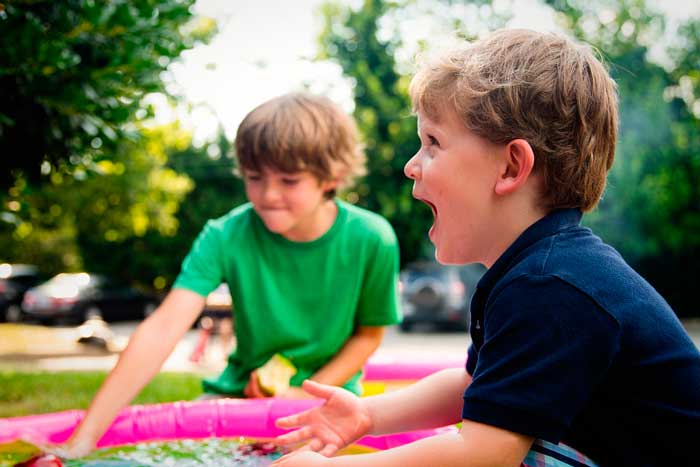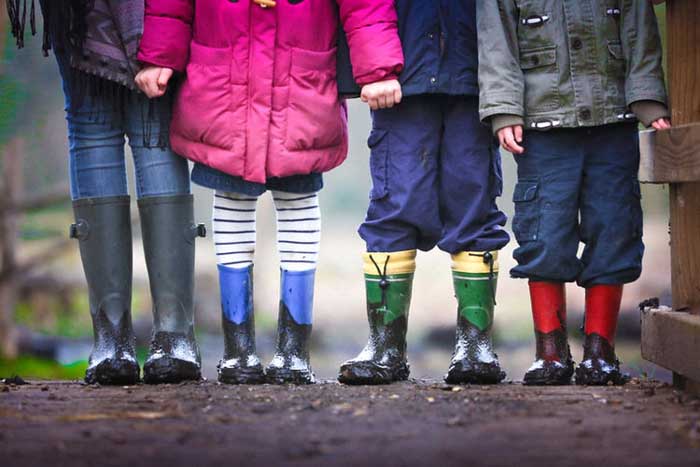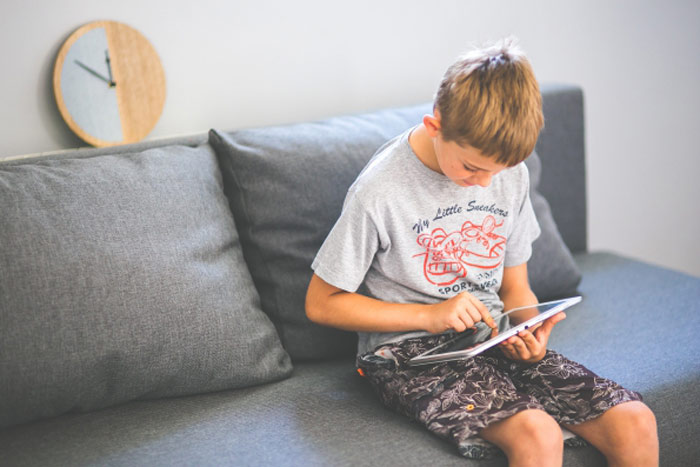How to Improve Your Child’s Social Skills?
Supposedly the main skill (at least one of the main skills) to be well-developed from an early age is social skills. Your child’s social skills help get along with pals, found proper personal relationships right from the start and will prove hefty support in the future professional career. You can find multiple ways to help your children with enhancing their social skills.
Teach children the art of fruitful conversation
Kids are not born with the ability to conduct conversations; they are apt to disregard remarks, interrupt and change the subject abruptly. They need explaining that these practices are unnerving and should be avoided.
Tell them to ask more questions
Conversations thrive on questions. They don’t have to be anything more than the simplest ones, but they should be related to the general line of the conversation and the companion. To keep the ball rolling teach them to make questions open, so that the companion won’t reply curtly but will have to be more explicit.
Starting a conversation is a special topic and a lesson
Greetings will do well with a lesson, too. Run through the typical openings and greetings, include non-verbals – smiling, waving, shaking hands, responds to being accosted by other kids or adults.
Children ought to know it is important to take turns for a good conversation
Explain to the kids that people who are speaking should be allowed to finish, and only then the other person can respond. Listening is an integral part of any conversation, and while one person is speaking, their companion should be listening and then reply in kind without starting to talk about themselves.
Advice the kids on the importance to be assertive
We know that assertiveness and aggression are poles apart, but do our children know it? Assertiveness allows one to state clearly their needs and wishes. For that one doesn’t need to be offensive, threatening or bullying. Aggression can and should be avoided.
Don’t omit explaining basic manners
It’s better not to assume that kids are well up in basics. To make sure, teach them manners – encourage the little ones to use as often as possible thank you, please, excuse me, and whatever is suitable to say at their age. Teach them about common courtesy with their peers and adults. Agree with all the household to make a point of using please and thank you all the time.
Tell them about personal space and privacy
Personal space is an inborn basic factor of social skills. Children should be aware that personal space exists, it can be different with different people and in different cultures. Friends, family members, and siblings can come closer and get involved in touching and hugging, but it doesn’t go for strangers.
The children should also know they control their personal spaces. Make sure you refrain from hugging them when they are averse to it. They must understand authority over the body is theirs only. So it is with other people, and they have to get permission when they want to sit on somebody’s lap or exchange hugs.
Explain them about body language and how to read it
When people feel uncomfortable, they back away, cross their arms and become uptight. It means their personal space has been trespassed.
Introduce role playing
Playing out imaginary situations with children of any age makes for excellent practice for kids to hone their social skills together. Let your child play the part of somebody they find it hard to talk to or be around. Watching your child tackle the situation you will be able to make out how they perceive the person in question and where the problem lies.
Having gotten the idea, let the child “play himself” and observe what line of behavior they keep to with this person. Then you can offer the child suggestions on how the interaction could be changed to be easier and more productive. Take body language into account as well, advising them to smile, establish eye contact and avoid shielding themselves with their arms.
Make them understand empathy
Empathizing is an art that has to be taught, and it’s up to the parents to teach it. As you discuss current situations and play them out, make the child place themselves in the participants’ shoes and imagine their feelings, attitudes, and needs under the given circumstances. Are they happy or discontent?
After watching a movie or reading a book, pick a character and start a discussion about how they might feel and what made them feel like that. Then you can draw comparisons with how the kid might feel if they were in such a situation.
Never underestimate active listening
Effective communication comprises many factors that require learning. Once the kid grasped the idea of entering into a conversation without undue shyness and asking the right kind of questions, the next important step is to listen attentively to the other person. It’s essential to focus on the companion’s ideas in order to come up with relevant and clever responses.
Provide a suitable environment
To practice social skills properly you will need an environment that will help develop them. A well-chosen environment means the right exposure and beneficial opportunities for socializing that can work wonders in terms of letting the kid(s) feel easy and relaxed.
When you are with your child in social situations, encourage them to speak as much as they can. Don’t wait for them to take initiative, arrange for playdates where children could interact freely with their pals and schoolmates.
Learn about the events in your neighborhood which you can attend with your kid(s). They can be school parties, birthday parties, outings to parks or playgrounds – anything where children can naturally develop their relationship and social skills.
There will surely be relationship problems on the way. Don’t leave the child alone with his or her relationship troubles – be ready to step in and help, discuss the reasons, explain that people sometimes disagree and get angry, see if there is a need to apologize for misconduct.
Be aware of the limits
Not all children are equally sociable – some are gregarious, others need but little socializing. An introverted kid will never reach the level of an extroverted one, however hard the parents might try. See that the child gets his or her fill in a comfortable environment, in a group as numerous as it is most desirable for them.
Read aloud at home
Reading aloud or storytelling is a great means of practicing social skills. It develops empathy in all groups of children (by the way, adults as well), especially if you pick up well-written stories where characters are depicted deeply and skillfully. Classic books set excellent examples which can work for years to come, teaching people even well into adulthood.
See that the child participates in extracurriculars
Extracurriculars are fine for quality interaction, learning social skills, and acquiring good social habits. There must be clubs, school activities and local organizations that offer games and practices interesting for the child. Make a round of those with your kid to find out the one(s) they will like best. Or you can start with your kid’s hobbies and find clubs and groups that are engaged in the same activity. They can even initiate such activities in their class, like making wallpaper for the classroom.
There are always many sports clubs around. Get the child involved in a team game where common goals, desire to win incite the young to understand interactivity and synergy. It is a great situation for fostering strong friendships.
All these bits of advice will stimulate the development of “soft skills” which are so necessary for your child’s growth into a full-fledged, self-confident and assertive adult who can find his or her niche in society easily.




